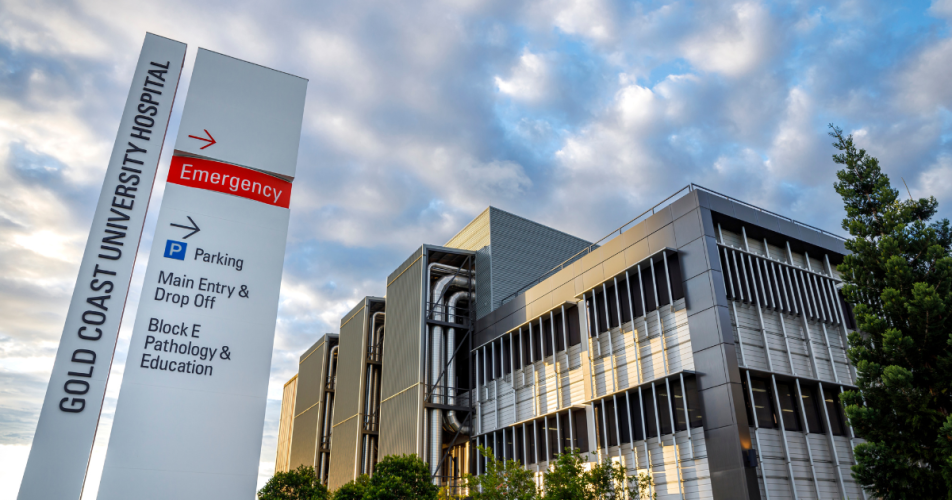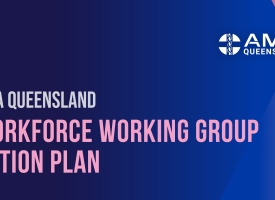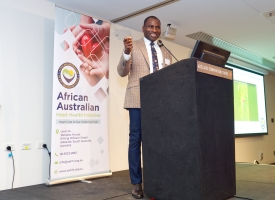Gold Coast junior doctors fear making fatigue-based errors
The issues facing our hospitals are multifaceted, and the Resident Hospital Health Check helps us to better understand the complex issues and how they can be rectified, AMA Queensland President Dr Nick Yim told ABC Radio Gold Coast. "The key thing here is, we need to ensure that there is a safe workplace not just for junior doctors, but for all employees."

Transcript: AMA Queensland President, Dr Nick Yim, ABC Radio Gold Coast, Drive with Bern Young, Friday 15 November 2024
Subjects: Resident Hospital Health Check, pill testing
BERN YOUNG: Do you worry about your safety? That a client could threaten you or a customer, depending on what you do. I imagine the stress of that feeling then on any given day, just because you're turning up to do your job. That's the fear that some junior doctors at Gold Coast University Hospital have. In fact, just a little under a third of them say they feel that their safety has been compromised when they're at work. Almost half are also worried that they're so tired they'll eventually make a mistake that could indeed harm a patient. These concerns have come out in the latest Australian Medical Association's check up on junior doctors. I'm joined by the President of AMA Queensland Dr Nick Yim. Hi, Nick.
DR NICK YIM: Good afternoon.
BERN YOUNG: This has been going on for a little while. You've been doing this health check of junior doctors for some years. And in fact, this is the seventh year, I think, that around half are reporting fears of making a fatigue-based error. Why isn't anything changing?
DR NICK YIM: DR NICK YIM: This is one of the greatest concerns. And you're absolutely right, AMA Queensland with ASMOFQ, we've been conducting this Resident Hospital Health Check now every single year just to assess what's going on in our public hospitals from a junior doctor perspective. And you've highlighted a few key statistics there. On the Gold Coast, there are concerns that 27 per cent of doctors are reporting concerns for their safety, which is quite worrying.
BERN YOUNG: So, what sort of safety concerns would they be then, do you think? Is it patients that they're worried about? What is it?
DR NICK YIM: It's quite complex. Obviously, there are patient concerns. There are concerns that potentially they might be experiencing patients that might be under influence of drugs and alcohol, or aggressive patients. But at the same time, it's actually walking, say from a hospital building, through the car park, late at night, for example. So, it’s also their own personal safety. There's a few different elements to that. But the key thing here is, we need to ensure that there is a safe workplace not just for junior doctors, but for all employees.
BERN YOUNG: How do we compare on the Gold Coast? Because I would imagine those sorts of risks are at any hospital across Queensland.
DR NICK YIM: So, on the Gold Coast it's pretty much on par based on the survey. Statewide, about 29 per cent of respondents felt that they had safety concerns and on the Gold Coast it's 27 per cent. So about on par.
BERN YOUNG: The fatigue-based errors is an interesting one because it's assumed that junior doctors, you know, they've come out of a long stretch at university and they're finally doing this passionate job that they've always wanted. And yet they work extremely long hours. None of us want to turn up to hospital and have a mistake made. So how likely is that fear of their mistake if they are tired, and what can be done about it?
DR NICK YIM: That 56 per cent of people fearing that they might make a fatigue mistake, that provides good insight for the employers, Queensland Health, to try and assist – where can we improve these fatigue areas? Like how much overtime are they doing, how many hours are they being rostered on? I think one thing to highlight as well is also access to annual leave. I know for you and I, obviously to help recharge the batteries, there is annual leave. Those holidays, those things are so important. So those are all the little factors that we need to look into.
BERN YOUNG: Have you had a look at that, Nick. Do you know whether they're getting adequate leave. And then also sometimes people need to be forced perhaps to take leave as well.
DR NICK YIM: You're spot on. So unfortunately, the Gold Coast didn't score that well in this area. They scored a D+, so this is to access to leave. But we also acknowledge that this is a multifaceted challenge where there is a health workforce challenge, not just in Queensland but across the country and also the world. And this is one of the areas where AMA Queensland, over the next couple of weeks, will catch up with all the Hospital and Health Services, including the Gold Coast, just to address these concerns with the employers and to see what strategies they can come about to rectify some of these issues.
BERN YOUNG: And so, what do you mean by that D+ in terms of the leave? Is that what junior doctors are saying, I'd like to take a holiday, but the hospital is saying – ‘sorry, we just don't have enough staff. You can't take a holiday.’
DR NICK YIM: That's probably a reasonable example. So, the question was, access to leave – are they satisfied with the preference for leave that we're taking into consideration. So, they might have wanted to take leave hypothetically in January, but maybe they couldn't have the opportunity because there might not be enough staff to backfill, etcetera.
BERN YOUNG: What else would you like to see change so that the next time you have this health report of junior doctors, we see a few more, at least B's, if not A's.
DR NICK YIM: I think one of the big things is hospital culture. So, this didn't apply to the Gold Coast, but there were some hospitals across the state that were discouraging junior doctors to participate in this survey. It's one of those situations where we feel that junior doctors, they need to have the confidence to report issues through the hierarchy to their employers. And obviously, if they are fearful of doing that report, they cannot make those active changes to ensure the safety of themselves, but also to patients and their community.
BERN YOUNG: Dr Nick Yim is the President of AMA Queensland. Of course, Nick, you and I were talking quite a few times just a few weeks ago thinking that we'd be, at this point, the eve of schoolies week, and there would be no pill testing clinic. We do have that happening. What are you expecting from that, this week?
DR NICK YIM: I think it's positive that pill testing is going to be available for these school leavers. They've done a great job over their many years of school, and this is the opportunity to let their hair down, to have a bit of a party. But at the same time, this might be a period where they might be tempted by illicit drugs, by pills, and also peer pressure. So, it provides these school leavers an opportunity, a confidential, voluntary free service to have a chat with a healthcare professional and have their pills tested. We know from many instances that we've seen in other pill testing services, 16 per cent dispose of those tablets, which is a great number.
BERN YOUNG: Well, let's see what happens over the course of the week. Do you think we'll be privy to the numbers that end up using that service, Nick, or will they keep that confidential?
DR NICK YIM: I suspect they will be collecting data. I think data is really important. We can have this data to discuss what other strategies we can with government. Hopefully we can keep this service and potentially expand this service to other areas because we don't want to see unintended overdoses or deaths, because we acknowledge that these are young people and obviously we don't want these pressures put onto the healthcare system if the overdoses do occur.
BERN YOUNG: Nick Yim is the President of AMA Queensland. Dr Nick Yim, of course. Thank you very much for your time.
DR NICK YIM: Always a pleasure and have a great weekend.
The Gold Coast Hospital and Health Service has always been very proactive in encouraging their doctors to complete the survey and implementing change accordingly.
AMA Queensland thanks them for their support and participation.
Contact: AMA Queensland Media: +61 419 735 641 media@amaq.com.au



